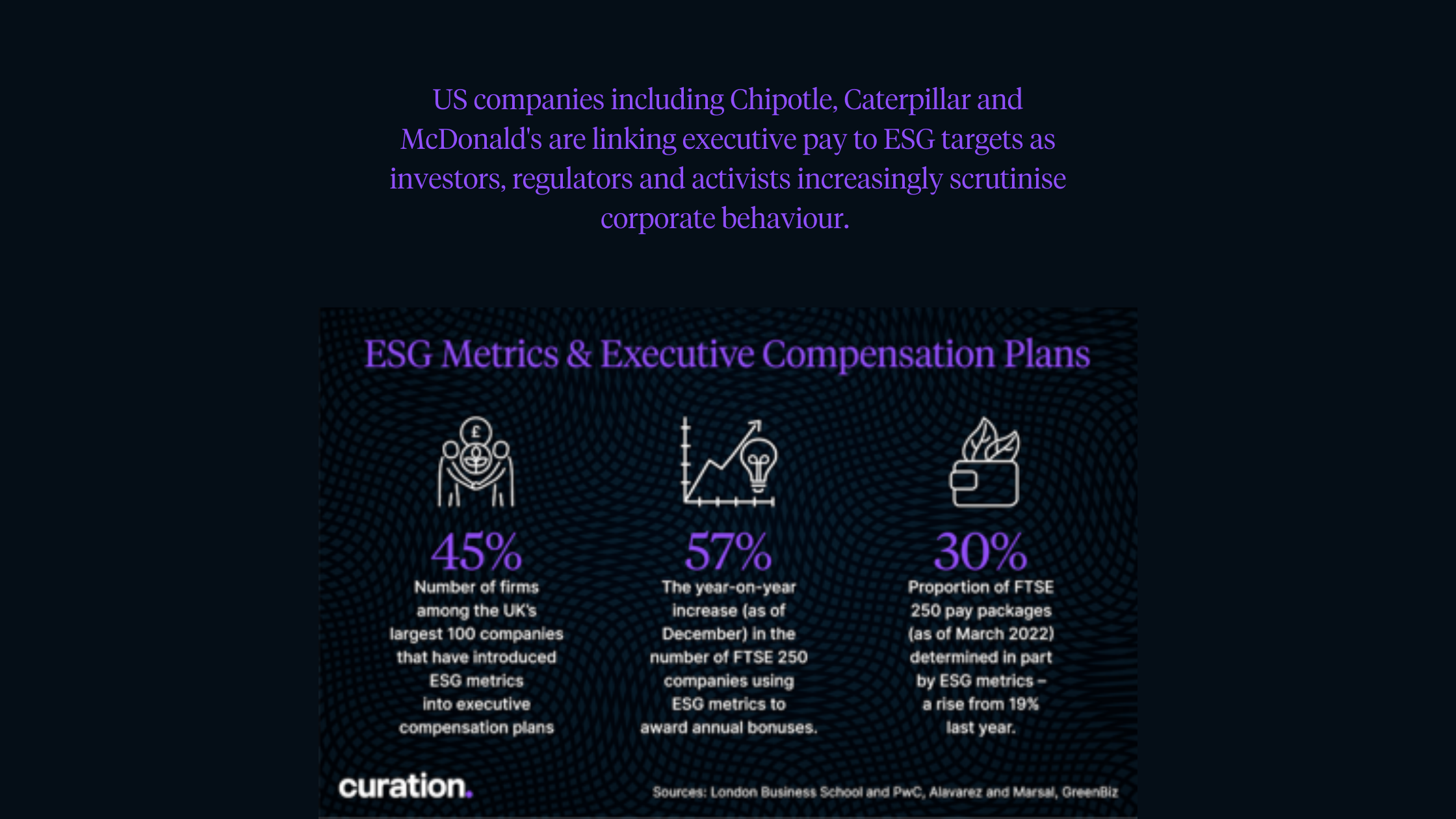
ESG-linked compensation: better in theory than in practice?
What’s happening? US companies including Chipotle, Caterpillar and McDonald’s are linking executive pay to ESG targets as investors, regulators and activists increasingly scrutinise corporate behaviour. A quarter of US companies had some form of ESG metric in their executive incentive plans in 2021, up from 16% in 2019, according to a study by Glass Lewis. Chipotle has introduced ESG targets worth up to 15% of annual incentive bonuses, with fast-food chain McDonald’s tying 15% of bonuses to diversity goals. Construction equipment manufacturer Caterpillar plans to introduce ESG metrics into its compensation plans in 2023. (Bloomberg Law)
Why does this matter? Linking ESG performance to executive pay could be an effective way of incentivising firms to improve their commitment to sustainability. Without clear ESG metrics, however, it could also encourage short-term thinking and greenwashing.
Shareholders see benefits – A number of investors have been pressuring firms to link pay to how firms are performing on ESG factors. Cevian Capital, for example, recently called on European public companies to integrate ESG targets into compensation plans and put these to shareholders at AGMs in 2022. In February, Allianz Global Investors said it will vote against large European firms which fail to link executive pay to ESG targets in 2023.
The advantages – According to the Principles for Responsible Investment (PRI) if structured appropriately, ESG-linked pay could increase corporate value by putting less emphasis on short-term performance targets and more on long-term sustainability objectives. ESG-linked pay may also result in better accountability on sustainability-related performance across management, PRI added.
The disadvantages – If ESG targets are linked to short-term financial incentives – such as annual bonuses – this may encourage short-term, tokenistic action and not the long-term sustainable thinking these compensation schemes intend to foster.
Furthermore, for ESG-linked pay to be effective, the ESG metrics to which pay is linked must be comprehensive, reliable and consistent, according to the PRI. In a comment letter to the SEC, Dimensional Fund Advisors said that firms often link pay to ESG metrics which are ill-defined or difficult to quantify. This could result in executives receiving bonuses without actually improving ESG performance.
Tom Gosling, an executive fellow at London Business School, said he fears an increase in firms including ESG targets in executive pay would lead to more pay and not more ESG. A Harvard Law School study found that tying executive pay to ESG goals is more likely to benefit the salary recipients rather than stakeholders.
Marathon Petroleum, for example, gave its CEO a $272,000 bonus for exceeding environmental goals the same year the firm spilled 1,400 barrels of fuel in an Indiana creek. This is reportedly because the company’s executive performance reviews look at the number of oil spills per year rather than the amount of oil spilled when assessing levels of compensation.
Looking ahead – Linking ESG targets to executive pay can be an effective tool in improving ESG performance. To be meaningful, however, comprehensive and reliable ESG metrics should be used.
ESG metrics should also be tied to long-term incentive packages rather than short-term incentive plans such as annual bonuses.


